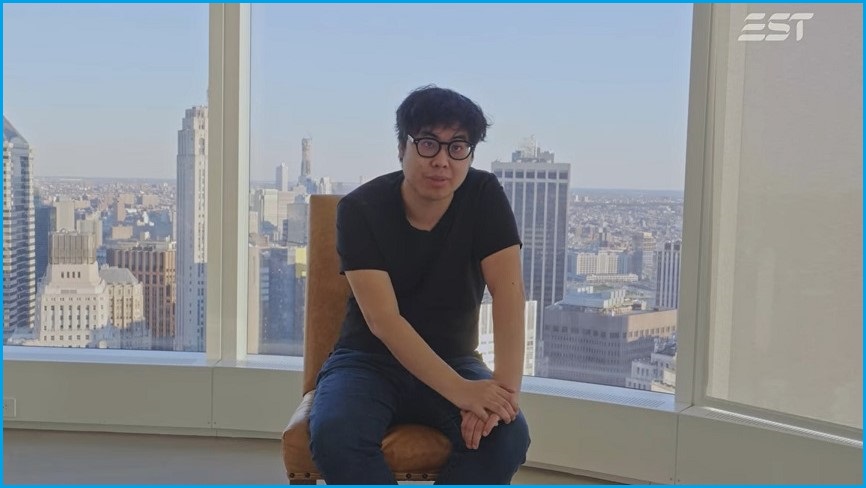When the price of Bitcoin crashed in early 2018, the cryptocurrency investment fund started by Australian Stefan He Qin was still making money.
Qin’s point of difference was that his fund, Virgil Capital, used a proprietary algorithm to automatically trade arbitrage, scraping cash from the price discrepancies between cryptocurrency exchanges.
Investors started piling in and by early February Virgil Capital had grown to hold US$23.5 million.
Soon he was making headlines.
A profile of the then 21-year-old featured in the Wall Street Journal and Qin sat on news finance TV panels talking about the arbitrage opportunity with cryptocurrency.
Qin was happily far from his hometown of Canberra where he was bullied and harassed as a young maths wiz who struggled with depression and suicidal ideation from a young age.
Within a month of his news appearances, Qin was in charge of $US60 million worth of investments.
Except Qin hadn’t plugged that cash into his money-making algorithm.
Instead he was using investor cash to fuel a lavish lifestyle filled with women, Magic the Gathering trading cards, and video games – all from the vantage of his luxury New York City penthouse apartment.
Crime doesn’t pay
“I took up boxing 6-months ago to learn how to defend myself in prison,” Qin says in a video interview posted to YouTube last week by small news site Eastern Standard Times.
“As you know, American prisons can be pretty scary.”
Qin is shadow boxing in his apartment, offering a small jab-uppercut combo for the camera while wearing a pair of large black gloves.
He punches and kicks the air in front of a large TV, gaming controllers, and a view of New York City befitting the crypto millionaire Qin spent years pretending to be.
The interview was filmed mere days before Qin began his stint in Fort Dix, a low-security federal prison where Qin will languish for the next 7.5 years.
Last February, Qin plead guilty to securities fraud for draining nearly $90 million of investor funds.
His investors had cottoned onto the scheme and were demanding their money back. When the requests became too large to fill, Qin tried to take money from his other cryptocurrency fund, VQR, and pay investors that way, ponzi-scheme style.
But soon the Securities and Exchange Commission was knocking on Qin’s door.
From Qin’s perspective, it wasn’t the angry investors that brought his loose house of cards tumbling down.
“Instead of focusing on growing my company and actually trying to make the money back on the second fund [VQR] – which was legitimate – I instead fucked around and played video games all day,” he says.
“My employees eventually got so fed up with me missing meetings, with me ghosting them, that I know my top executives formed a cabal against me to actually [blow the whistle] on me.”
Betrayal and sugar babies
Qin comes across as remorseful. He admits he was greedy and too focused on the outward appearance of success than how his actions might harm people who trusted him with their money.
“I’m glad that I’ll have seven-and-a-half years to work on myself and figure out what I want to really, like, be in life,” he says in the EST interview.
“I want to pay back all my investors not just for the financial harm but the emotional and physical harm. I’ve got a big debt to pay to society and that’s how I’m going to live the rest of my life.”
But for all his talk about moving on from his cryptocurrency fraud operation, the way Qin speaks shows a hint of blame for other people.
Early in the interview, Qin initially describes a disagreement with his Virgil Capital co-founders as “a betrayal” which ultimately left him, at the age of 21, solely in charge of millions of dollars’ worth of investor funds.
“That’s a recipe for disaster,” he admits.
Also precipitating Qin’s fall from grace was a relationship break-up after his girlfriend who he was in love with “cheated on me with some guy who was richer than I was”.
“You have this like beautiful girl you think you’re going to spend the rest of your life with, and yeah you’re not rich enough for her,” Qin says.
The Australian made up for this with what he describes as an addiction to “sugar babies” – women for whom he would buy things in exchange for their company.
“The only reason I had a three-bedroom place was because I had three sugar babies at any given point in time,” Qin says while touring his expansive penthouse apartment.
“That’s my biggest regret because that’s what I spent money on.
“At least if it was material stuff, if it’s like cars and stuff, at least the SEC can take that and sell that – but how can they get money back from sugar babies?”
According to the interview’s post script, Qin is planning to spend his time in prison writing a book.
He also wants to return to Australia and run for political office.










